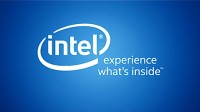Intel’s 3D Tracking, VR and Other Tech to Enhance Olympics
September 18, 2019
The 2020 Tokyo Olympics will be enhanced by a suite of augmented and immersive tools and experiences empowered by artificial intelligence, it was announced last week by Intel and the International Olympic Committee (IOC). Intel will bring a host of innovations to the official games and to the new Intel World Open eSports tournament including 3D Athlete Tracking (3DAT), which combines augmented reality (AR) and AI for real-time insights, VR broadcasts and managerial training, and NEC facial recognition for streamlined operations.
“Intel is focused on delivering world-class technology integrations at the Olympic Games Tokyo 2020 to improve the experience for athletes, attendees, viewers and Games staff while also demonstrating how technology can transform businesses. We are excited to make the first of a series of announcements about our role in the Olympic Games Tokyo 2020,” said Rick Echevarria, general manager of Intel’s Olympics Program.

3DAT will be broadcast during replays of the 100 meter and other sprint events. The technology creates visual overlays to illustrate the speed and biomechanics of athletes’ movements during race. It does this by marrying form and motion data captured with machine vison cameras, computer vision and pose estimation algorithms in near real-time. The resultant analyses will provide viewers with insights into what is happening on the screen and according to The Verge, “will be able to do more than what’s shown…” in the announcement demo.
Intel microprocessors, software, algorithms and other technologies will be used to power VR training experiences for key managers in advance of the competition. Interactive scenarios will be built on 3D venue models to create a realistic experience and deliver accurate feedback. Like in 2018, Intel will also broadcast select programs in VR, including the opening and closing ceremonies, track and field and gymnastics. But, according to Engadget, last year’s Intel VR content encountered serious challenges, and questions remain as to whether the computing giant will be able to up its game in 2020.
Additionally, Intel processors will power NEC’s facial recognition system, NeoFace, to help identify athletes, volunteers, media, and staff at entry points and accommodations. It’s a tool that organizers will use to reduce identification fraud and to diminish long wait times at ID checks.
Many of the Intel powered solutions, along with a potential drone light show, will also see action at Intel’s recently announced World Open eSports tournament. The new competition is sanctioned by the IOC and, according to Engadget, will feature national teams just like the Olympics. The IOC has recognized competitive computer gaming as a sport but has not invited eSports to join the official lineup.

No Comments Yet
You can be the first to comment!
Sorry, comments for this entry are closed at this time.